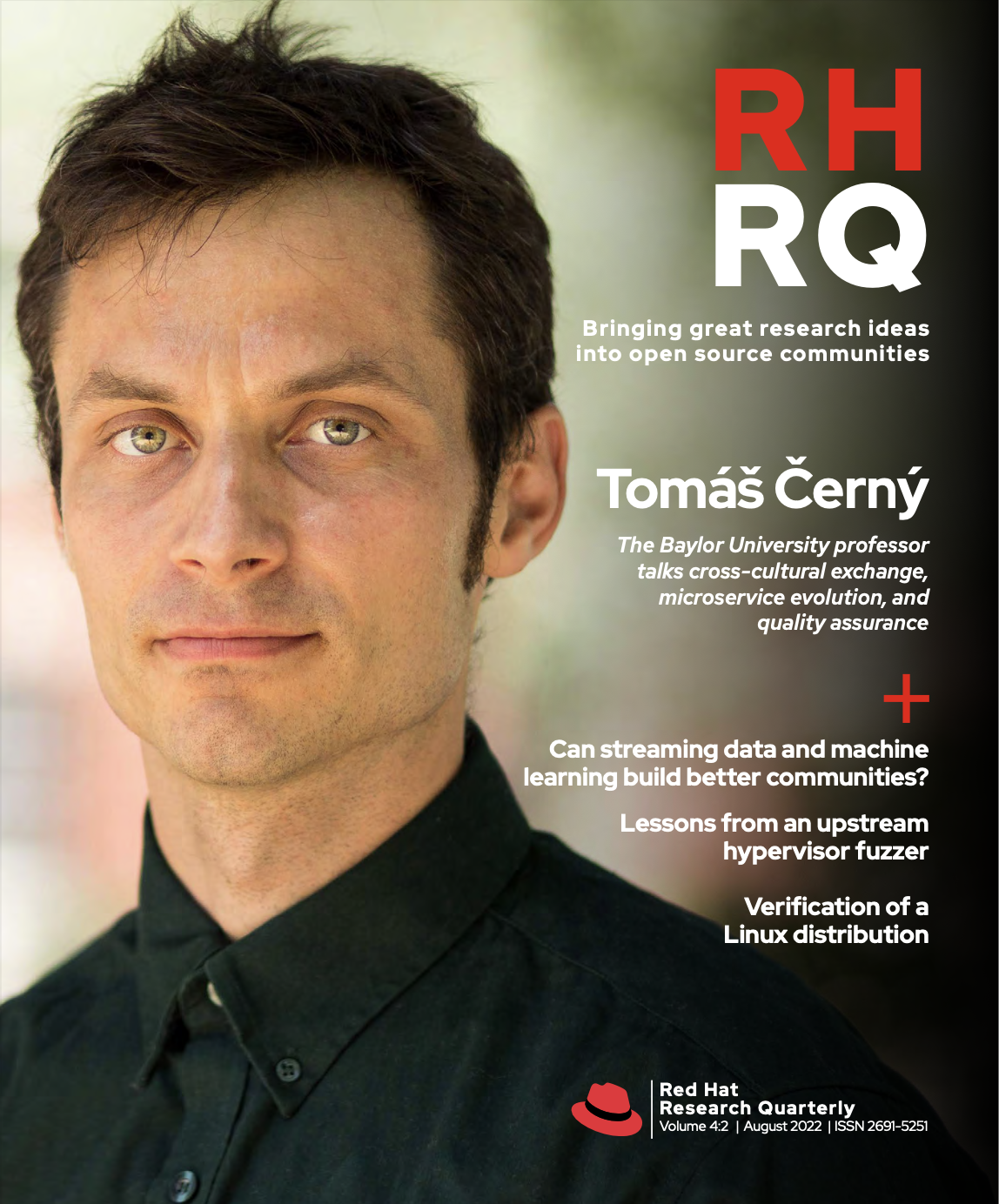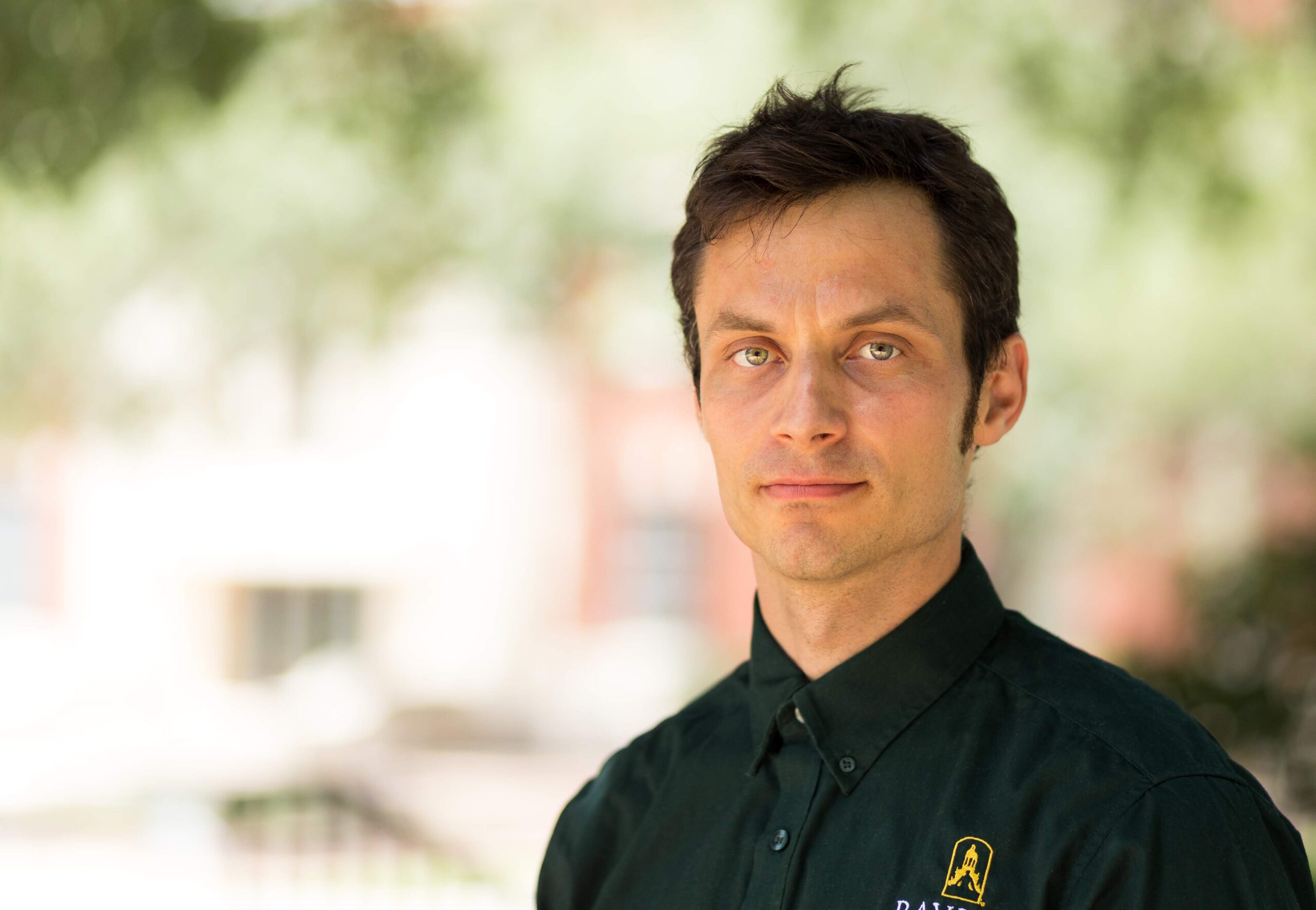Red Hat Research Quarterly
Highlights from this issue
From Brno to Waco: On cross-cultural exchange, microservice evolution, and quality assurance
An interview with Tomáš Černý
Volume 4, Issue 2 • ISSN 2691-5278
Departments
Features
Inside this issue
An open source powered smart village project underway at the Red Hat Collaboratory may have the potential to change the world—or at least a town near you. For as long as I can remember—and after almost 40 years in the IT industry, that’s quite a while now—every year for the last 20 years or so […]
Brno, Czech Republic, is home to the world’s largest Red Hat technology center, and it was the birthplace of the university-industry relationship model that became Red Hat Research. Here’s how the smart city concept has been implemented in one of our hometowns. The article stems from a presentation at DevConf.cz 2022. To flourish in an […]
Could a grammarless approach increase its effectiveness? Low-level systems such as Linux kernels and hypervisors form the foundation of cloud systems today. The virtual machines (VMs) provided by hypervisors are attractive targets for attackers. Bugs in hypervisors create the risk of an attacker in a malicious VM, compromising the isolation guarantees provided by the hypervisor, […]
RHRQ asked Brno research manager Matej Hrušovský and Red Hat quality assurance engineer Pavel Tišnovský to talk with long-time collaborator Tomáš Černý, a native of the Czech Republic now teaching at Baylor University in Waco, Texas. Prof. Černý was in Brno recently as part of his highly successful student research initiative, which brings Baylor students […]
While research on formal verification continues, fully automatic dynamic analysis of RPM packages is now available for Fedora users. In 2019, Red Hat joined the AUFOVER (Automation of Formal Verification) project, which focused on fully automatic detection of bugs in complex software products based on formal verification. The project was driven by Honeywell and supported […]
Successful industry-academia relationships don’t just happen. Here’s what it takes to start a collaboration and make it work. As a research supervisor, one of my most important tasks is finding a good fit between engineers with a problem and academicians who can collaborate with them on a project to explore some aspect of that problem. […]
I first met Boston University PhD student Alex Bulekov at Red Hat’s Boston office in the fall of 2018. At the time, I had very little idea of what a “fuzzer” was, let alone why building a better one would be a useful and noteworthy thing. (In case you, too, are ignorant on this topic, […]
Daniel Bristot de Oliveira’s research in real-time systems led to the inclusion of the RTLA in Linux 5.17. Red Hat Research’s Dr. Daniel Bristot de Oliveira presented the Real-Time Linux Analysis Toolset (RTLA) at the Red Hat Open Source Summit held June 21- 24, 2022, virtually and in Austin, TX, USA. Daniel’s research was featured in a […]
The Red Hat Collaboratory at Boston University is supporting select undergraduate student research projects during Summer 2022, in keeping with its mission of advancing education in open source technologies. So far, six projects have been chosen to receive funding and supervision from BU computer engineering professors active in their own Collaboratory projects, with more expected. […]
Red Hat Research collaborates with universities and government agencies to produce papers that bring open source contributions along with them. This is a sampling of recent publications and conference presentations; to see more visit the publications page on the Red Hat Research website.














